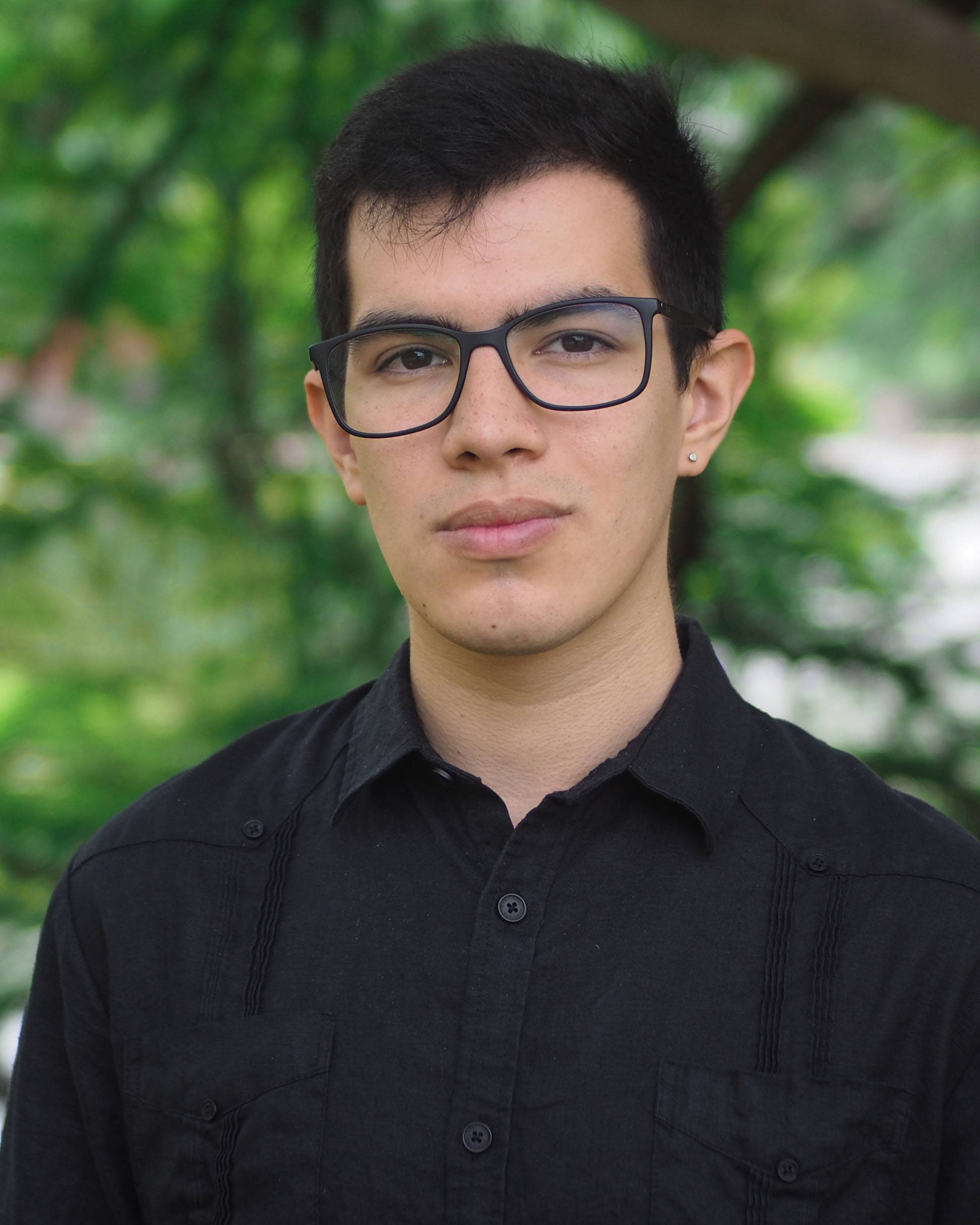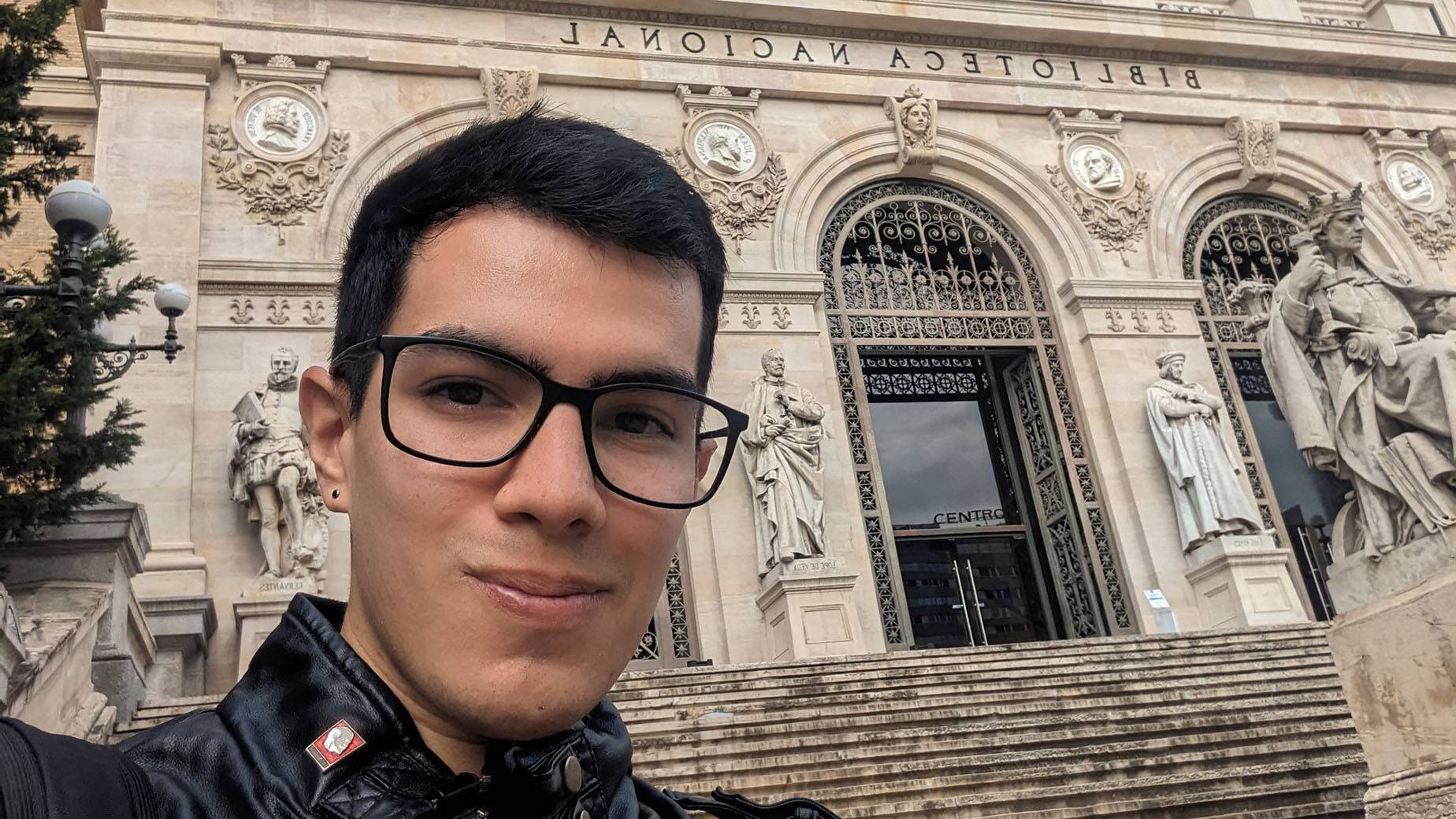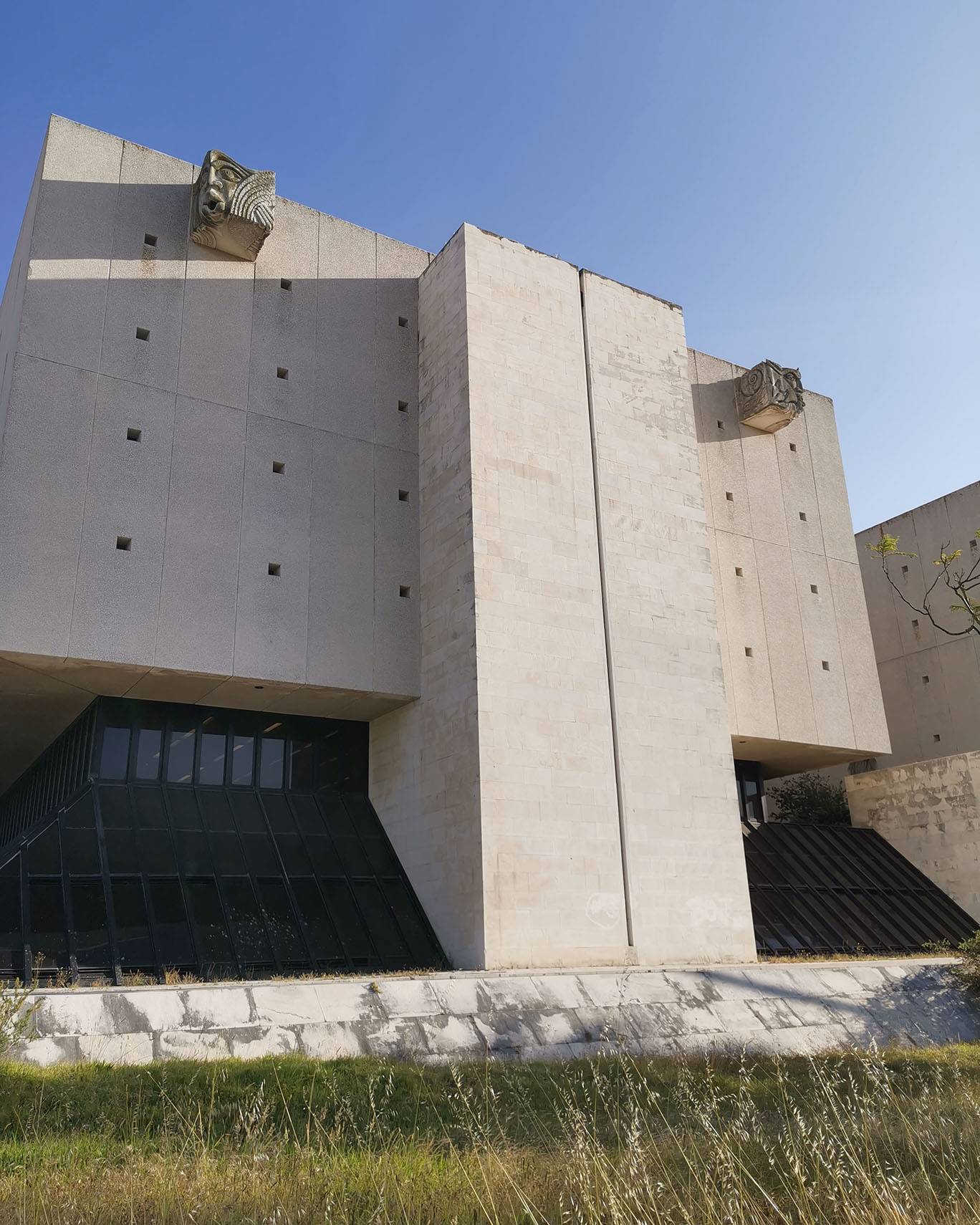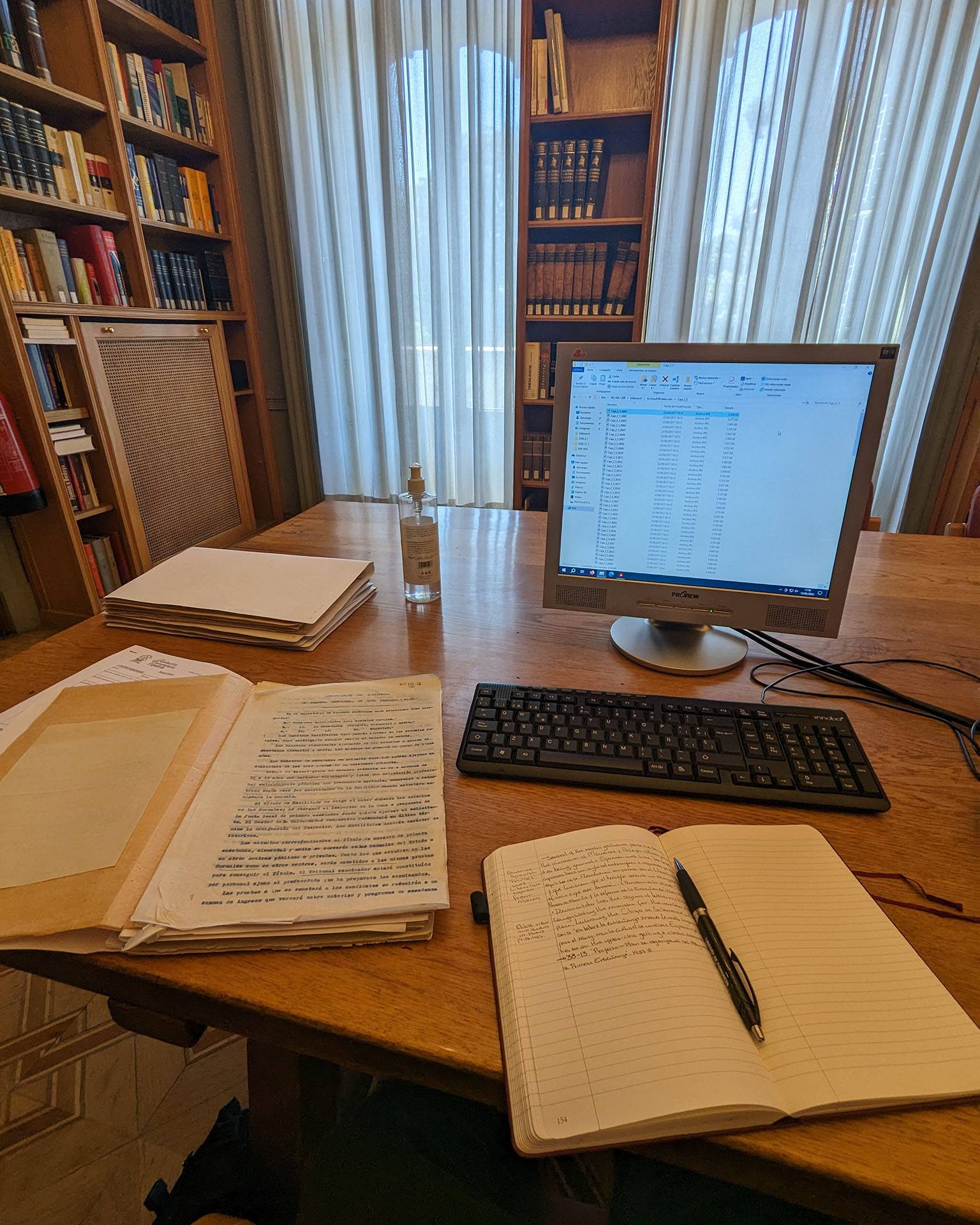Luiz Francisco Guizzo Gutierrez Osorio, a third-year graduate student studying history at Texas State University, reflects on his experience in Lisbon, Portugal, where he conducted research for his master’s thesis at the Torre do Tombo National Archive as a recipient of the FLAD Short-Term Research Fellowship. The program is aimed at researching Portuguese history, culture, languages, and other related topics.
A Researcher’s First Day at Torre do Tombo

Osorio recalls his first day at the archive as the most impactful moment of his fellowship. The sheer volume of archival collections and the complexity of sorting through historical documents made him realize the vast scope of his research.
“It was overwhelming,” Osorio said. “But after some hours of work, it dawned on me that this was exactly the job—devising methods for working through those archives, making tough decisions, and synthesizing as much as possible within my own clearly defined limitations.”
Despite these challenges, he found the experience invaluable, particularly due to the professionalism and accessibility of the archive’s staff.
“It was one of the most impressive archives I’ve ever visited, not for its grandiosity, but for its history and importance,” he said.
Tracing the Roots of Fascism
Osorio’s research focuses on the development of fascist educational projects within the Portuguese and Spanish dictatorships of the 1930s and ’40s. His thesis examines how the Salazarist and Francoist regimes shaped visions of citizenship during their periods of greatest fascist influence.
His interest in fascism was shaped by his upbringing in Brazil, where he witnessed the rise of neofascist political movements.
“Growing up in Brazil, I had my own unfortunate experience with the rise of neofascist politicians,” Osorio said. “I realized that this wave of far-right authoritarianism was actually a larger global phenomenon and that the only way to truly understand it was by looking into its historical roots.”
By comparing Portuguese and Spanish fascist dictatorships—cases he believes are often overshadowed by Germany and Italy—Osorio aims to analyze the ideological transformation from fascist movements to governance. His goal is to contribute to a broader understanding of how fascist structures evolve and how they can be identified in contemporary contexts.


